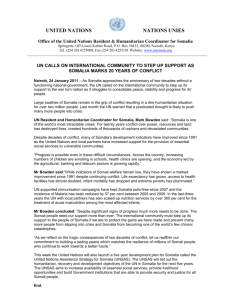Construction Project Performance in Mogadishu: Factors & Solutions
advertisement
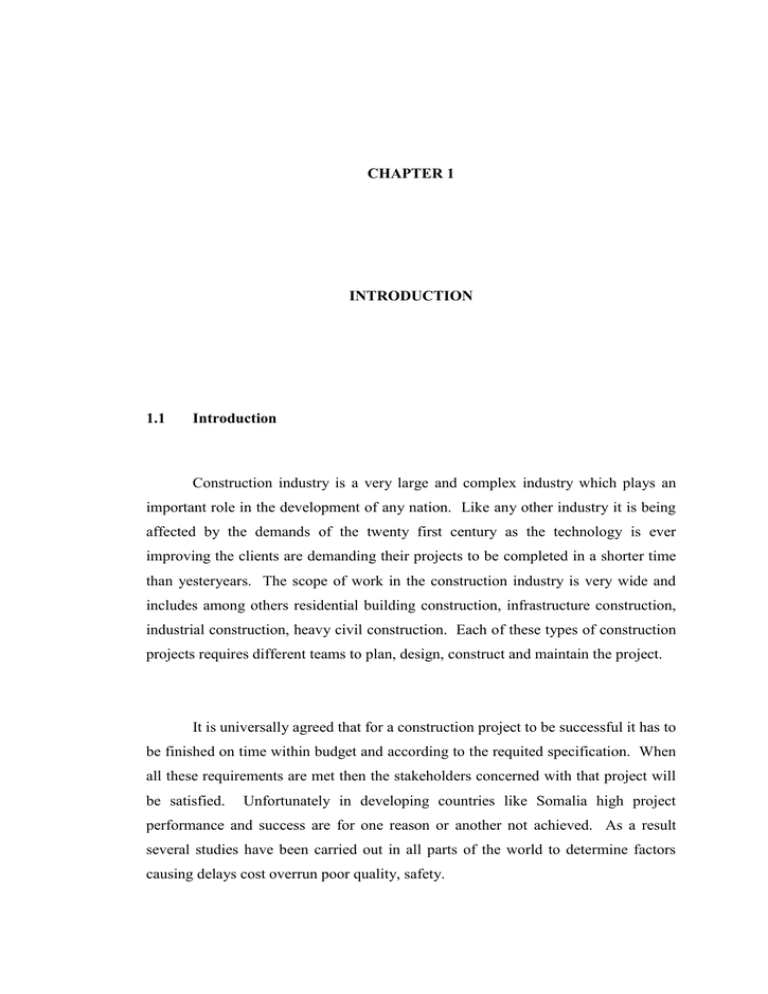
1 CHAPTER 1 INTRODUCTION 1.1 Introduction Construction industry is a very large and complex industry which plays an important role in the development of any nation. Like any other industry it is being affected by the demands of the twenty first century as the technology is ever improving the clients are demanding their projects to be completed in a shorter time than yesteryears. The scope of work in the construction industry is very wide and includes among others residential building construction, infrastructure construction, industrial construction, heavy civil construction. Each of these types of construction projects requires different teams to plan, design, construct and maintain the project. It is universally agreed that for a construction project to be successful it has to be finished on time within budget and according to the requited specification. When all these requirements are met then the stakeholders concerned with that project will be satisfied. Unfortunately in developing countries like Somalia high project performance and success are for one reason or another not achieved. As a result several studies have been carried out in all parts of the world to determine factors causing delays cost overrun poor quality, safety. 2 In Somalia, improve in construction project performance can go a long way in providing a solid platform to revive the Somali economy which will turn help improve other sectors such as education, health and business of the country. Augusto et al (2006) stated that the effective performance of construction project cannot be achieved without challenges and obstacles. To meet these challenges and overcome these obstacles, an organization must have a clear understanding of its performance in relation to its competitors. Good performance can contribute the efficiency in the construction process. Efficiency in the construction process can be defined as the project constructed within the time schedule and cost budget. It is widely accepted that a project is successful when it is finished on time, within budget, in accordance with specifications and to stakeholder satisfaction. 1.2 Problem Statement Business dictionary defines performance as the attainment of a given task measured against preset known standards of accuracy, completeness, time and cost. In a contract, performance is deemed to be the fulfillment of an obligation, in a manner that releases the performer from all liabilities under the contract. Poor performance is a failure by an employee to reach and maintain a satisfactory standard in their work which their skills, knowledge and capabilities mean they are capable of attaining. This may manifest itself in a variety of ways – for example, a failure to follow appropriate procedures, guidelines, policies and work practices; carelessness and inattentiveness; failure to meet expected and agreed standards of delivery; and inappropriate behaviours. 3 Poor performance of construction projects in developing and under developed countries like Somalia occurs very often. In Mogadishu city there are many construction projects being implemented by the Somali government along with the Turkish government as well as private companies that are increasing in number. Unfortunately there are many projects that don’t give the desired results for both the contractor and client which are due to poor performance. There are many reasons that cause these problems (Ugwa and Haupt, 2007). In Mogadishu city, construction projects performance problem appear in many different forms. There are many construction projects that fail in time performance, while others fail in cost performance and others fail in other performance indicators. Most of this projects end up in poor performance because of many evidential reasons such as: obstacles by client, non-availability of materials, roads closure, amendment of the design and drawing, additional works, waiting the decision, handing over, variation order, amendments in Bill of Quantity and delay of receiving drawings (AECOM in Africa, 2012). In addition there are other indicators of performance in Mogadishu city such as project managers, coordination between participants, monitoring, and feedback and leadership skills. However, there are three important issues related to failures and problems of performance in Somalia which are political, corruption, economic and cultural issues. This poor performance of construction industries leads to delays in completion of the project, abandoning of the project for a long time before resuming it and sometimes termination of the project. The parties that are involved in a construction project are the client, contractor and consultant. The client is the owner of the project and imitates the development of a project, the consultant provides professional services which include designing, testing, surveying and consultation services, whereas the construction engineer carries out the building works of the project as per the requirement of the client and design of the consultant. In order to complete the project in time, on budget and according to the specifications required it is crucial that there is a professional relationship among these three parties. The relationship between the parties of construction projects in Somalia is of adversarial 4 nature whereby each party wants to increase its profit as much as it can and this in turn will have an effect on the performance of construction projects. The most widely used project delivery method in Somalia is the Design/Bid/Build method also known as the Traditional method. Most owners are familiar with this delivery method where each stage follows the others in a linear progression with no overlap. After securing the services of an architect, who reports directly to the owner, plans and specifications will be drafted, and then contractors will bid for the project. The lowest responsive, responsible bidder is awarded the project, which progresses exactly as designed. Being a familiar method, Competitive Bid projects are an easier sell, and they’re easier to manage because the scopes and stages are rigidly defined. However, while the competitive Bidding structure obtains low bids, the cost of a design is not determined until the bids are received. This could mean that a redesign is required if the bids exceed the budget, and because time is a financial factor, cost estimates can change during the design process. The fragmented approach can also cause more finger-pointing between parties, since the contractor is not able to give advice during the design, budget, or project planning phases. It has been observed that the traditional system does not create a unified team in which experience, feedback, and new ideas are shared (Tenah 2001), with team members often not putting the clients’ requirements as their first priority (Smith 1998) resulting in completed projects that are not fully responsive to the client’s needs (Markus 1997). In Somalia the poor performance in construction projects results in delay, cost overrun, poor quality and the worst of all abandoning of the project as it does not meet the client requirements. In order to address the above problems, questions must be asked using the five W’s and one H approach of six sigma. 1. Why did the project not meet its desired outcome? 2. Where did the problem occur? 5 3. When did the problem occur? 4. Who was responsible for that particular works? 5. What are the factors that contribute to poor performance? 6. How could those factors have been overcome? After finding out the problems that lead to poor performance it is important to find out ways to eliminate or mitigate those problems to avoid similar problems occurring in future projects through the help of recommendations. 1.3 Aim and Objectives This study aims to analyze the local factors affecting the performance of construction projects in Mogadishu city, thereby creating awareness to the project team to improve project performance in Somalia. The objectives are as follows: 1. To study the performance of construction projects in relation to their cost and time 2. To identify the contractor, consultant and client related factors that contribute to the poor performance of construction projects. 3. To evaluate the effects design/bid/build method of procurement has on the performance of construction projects. 4. To suggest recommendations that can improve the performance of construction projects. 6 1.4 Scope of the Study The scope of the study focuses on construction projects in Mogadishu which will cover only commercial and residential buildings in Mogadishu, Somalia run by private companies. This study focuses on the initial stage of the projects until the completion of the construction work and does not include maintenance. 1.5 Importance of the Study The importance of this study is to determine the factors that lead to poor performance in construction projects and determine ways to improve the performance. Nowadays, projects are becoming much more complex and difficult. The project team is facing unprecedented changes. Improving the effectiveness of projects achieved by determine the factors that cause poor performance of construction projects. In addition to enable appropriate allocation of limited resources. Some researchers have been conducted to identify critical success factors affecting the success of a construction project however these factors are not sufficient enough to be used as reference for poor construction project performance.
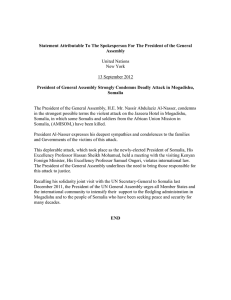


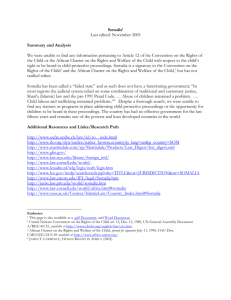


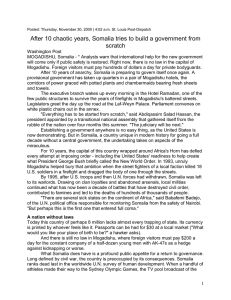

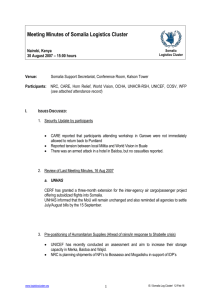
![Maternity Nurse CV - [Your Name] | Midwife Experience](http://s2.studylib.net/store/data/027151636_1-f9de4687fc488f477fc8a7e200171cee-300x300.png)
